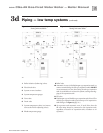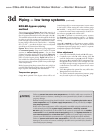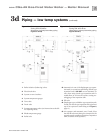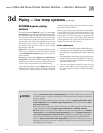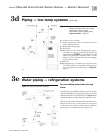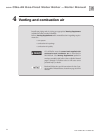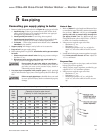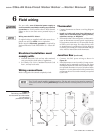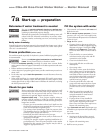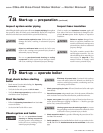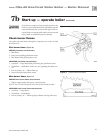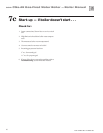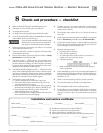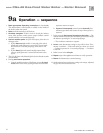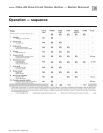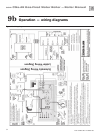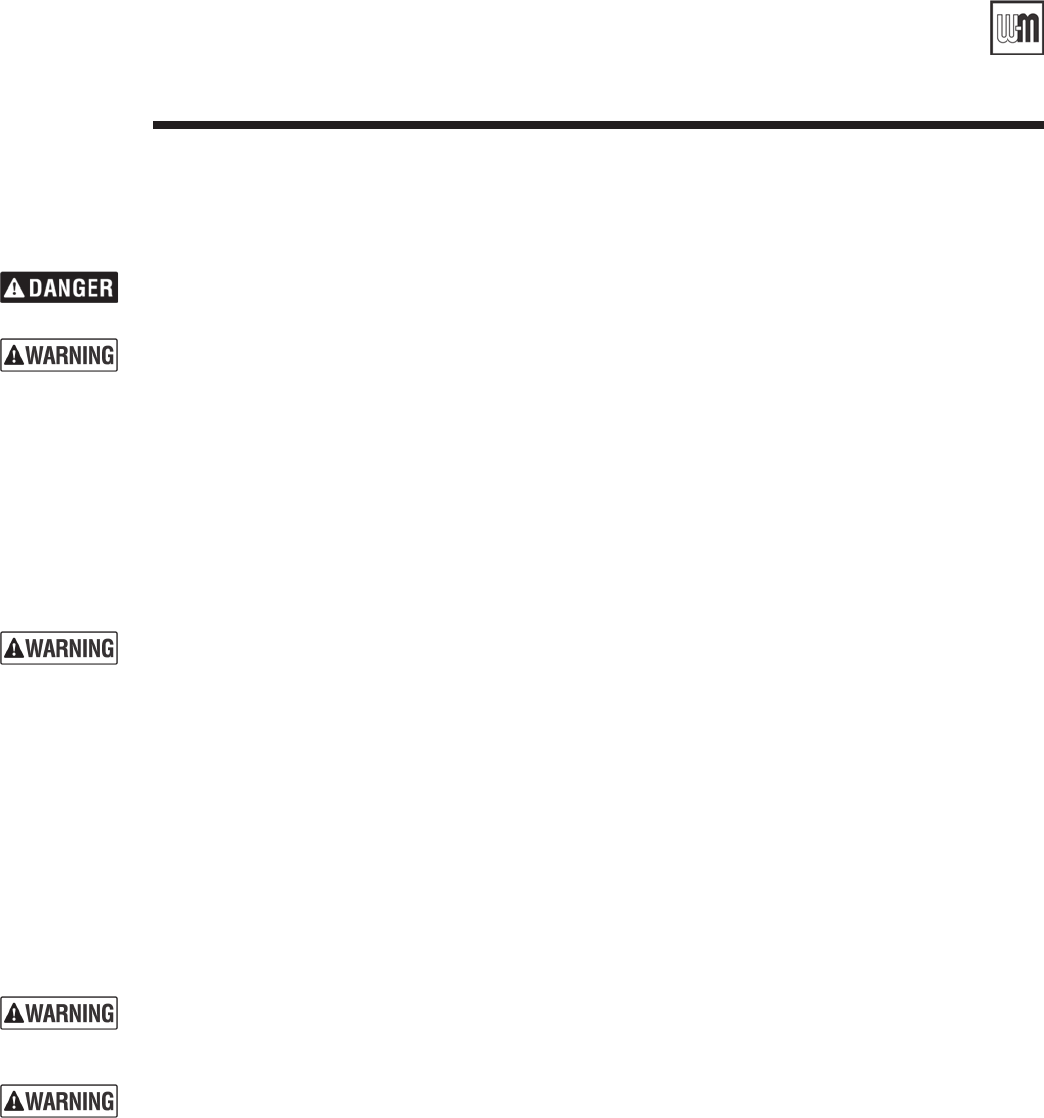
Part number 550-110-282/1108
27
GOLD
CGs-4E Gas-Fired Water Boiler — Boiler Manual
Start-up — preparation7a
Fill the system with water
1. Closemanualandautomaticair vents and
boiler drain cock.
2.
Fill to correct system pressure.Correct
pressure will vary with each application.
Typical cold water fill pressure for a residential
system is 12 psi.
3.
Purge air from system:
a. Connectahosetothepurgevalve(see
drain valves, item
6, in suggested piping
diagrams on pages 17 through 21, Fig-
ure 6
through Figure 11). Route hose
to an area where water can drain and be
seen.
b. Closetheboilerorsystemisolation
valve between the purge valve and fill
connection to the system.
c. Closezoneisolationvalves.
d. Open quick-fill valve on cold water
makeup line.
e. Open purge valve.
f. One zone at a time, open the isolation
valves.Allowwatertorunthroughthe
zone, pushing out the air. Run until no
noticeableairowispresent.Closethe
zone isolation valves and proceed with
the next zone. Follow this procedure
until all zones are purged.
g. Closethequick-llwatervalveand
purge valve and remove the hose. Open
all isolation valves. Watch that system
pressure rises to correct cold-fill pres-
sure.
h. Afterthesystemhasoperatedfora
while, eliminate any residual air by
using the manual air vents located
throughout the system.
i. If purge valves are not installed in
system, open manual air vents in system
one at a time, beginning with lowest
oor.Closeventwhenwatersquirtsout.
Repeat with remaining vents.
4. Open
automatic air vent (diaphragm-type
or bladder-type expansion tank systems only)
one turn.
5. Open other vents:
a. Startingonthelowestoor,openair
vents one at a time until water squirts
out.
b. Repeat with remaining vents.
6. Refill to correct pressure.
Determine if water treatment is needed
Donotusepetroleum-based cleaning or sealing com-
pounds
inboilersystem.Severedamagetoboilerwilloccur,
resulting in substantial property damage.
Eliminateallsystemleaks.Continualfreshmakeupwaterwill
reduceboilerlife.Mineralscanbuildupinsections,reduc-
ing heat transfer, overheating cast iron, and causing section
failure.
Verify water chemistry
Consultlocalwatertreatmentcompaniesforunusuallyhardwaterareas(above
7grainshardness)orlowpHwaterconditions(below7.0).BoilerwaterpHof
7.0 to 8.5 is recommended.
Freeze protection (when used)
Use antifreeze made especially for hydronic systems. Inhibited propylene glycol
is recommended.
Donotuseethylene glycol, automotive or undiluted anti-
freeze
.Severepersonalinjuryordeathcanresult.
1. Determineantifreeze quantity accordingtosystemwatercontent.Boiler
water content is listed on page 63. Remember to include expansion tank water
content.
2. Follow antifreeze manufacturer’s instructions.
3. A50%solutionofpropyleneglycol/waterprovidesmaximumprotectionto
about-30°F.
4. Local codes may require back ow preventer or actual disconnect from city
water supply.
5. When using antifreeze in a system with automatic fill, install a water meter
tomonitorwatermakeup.Glycolwillleakbeforethewaterbeginstoleak,
causingglycolleveltodrop.Addedwaterwilldilutetheantifreeze,reducing
the freeze protection level.
Check for gas leaks
Beforestartingtheboiler,andduringinitialoperation,smell
near the floor and around the boiler for gas odorant or any
unusualodor.Donotproceedwithstart-upifthereisany
indication of a gas leak. Repair any leak at once.
Propane boilers only—Yourpropanesuppliermixesan
odorant with the propane to make its presence detectable.
In some instances, the odorant can fade and the gas may no
longer have an odor.
• Propanegascanaccumulateatoorlevel.Smellnearthe
floor for the gas odorant or any unusual odor. If you suspect
a leak, do not attempt to light the pilot.
• Usecautionwhenattemptingtolightthepropanepilot.
This should be done by a qualified service technician, par-
ticularly if pilot outages are common.
• Periodicallychecktheodorantlevelofyourgas.
• Inspectboilerandsystematleastyearlytomakesureall
gas piping is leak-tight.
• Consultyourpropanesupplierregardinginstallationofa
gas leak detector. There are some products on the market
intendedforthispurpose.Yoursuppliermaybeableto
suggest an appropriate device.



